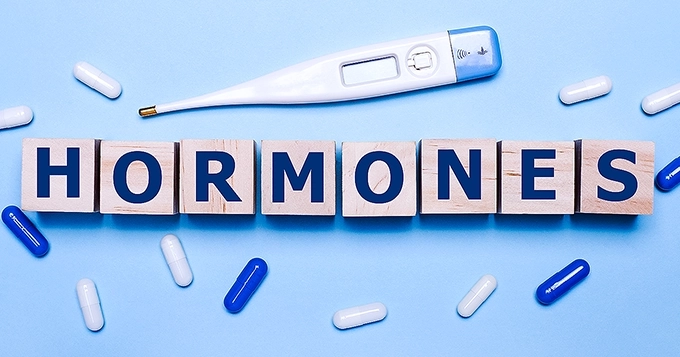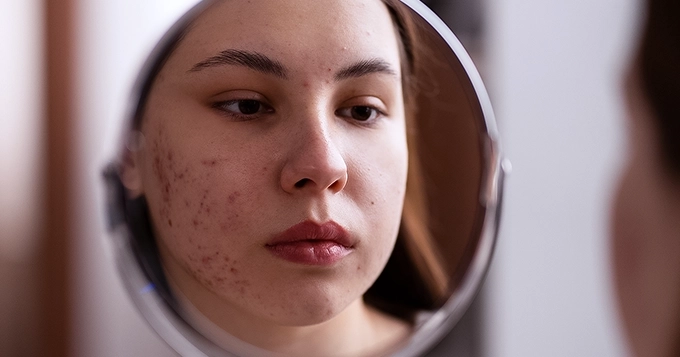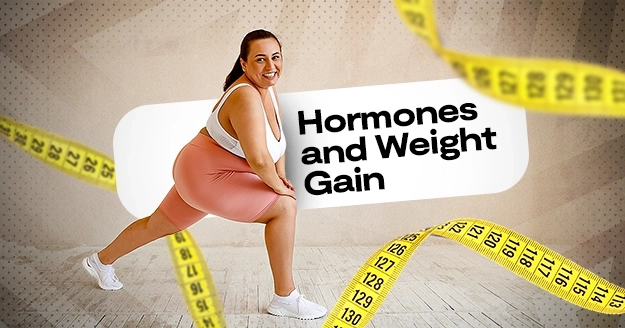Understanding Hormones
Hormones are vital chemicals that help communicate messages throughout your body, including to organs, skin, muscles, and tissues, through your bloodstream. They orchestrate various bodily functions, guiding actions and timing. Your health and well-being hinge on these chemical messengers.
Over 50 hormones have been identified in the human body, each playing a crucial role in our health and well-being.
Your endocrine system, comprised mainly of glands, produces and releases hormones. These hormones regulate many bodily processes, including metabolism, homeostasis, growth, sexual function, reproduction, sleep-wake cycles, and mood.
Understanding Hormonal Imbalance
Experiencing a hormonal imbalance occurs when there’s an excess or deficiency of one or more hormones, encompassing various hormone-related conditions under its broad umbrella.
Minor fluctuations in hormone levels can lead to significant changes in the body, sometimes requiring medical intervention.
These imbalances may vary in duration, ranging from temporary to chronic states. Furthermore, while some require treatment to maintain physical well-being, others may not directly affect health but can still impair quality of life.
Causes of Hormonal Imbalance
Hormonal imbalances can occur due to various factors and affect individuals of any gender or age. Common causes of hormonal imbalances include:
- Chronic Stress: This can disrupt the balance of hormones such as cortisol, adrenaline, and insulin, leading to imbalances in other hormones as well.
- Poor diet: A diet rich in sugar, processed foods, and unhealthy fats can disrupt hormonal balance, while a lack of essential nutrients can impair hormone production.
- Lack of sleep: Not getting enough quality sleep can disrupt the body’s natural hormone production and regulation processes, particularly affecting hormones like melatonin, cortisol, and growth hormone.
- Medical conditions: Certain medical conditions and diseases can cause hormonal imbalances. These may include thyroid disorders (such as hypothyroidism or hyperthyroidism), adrenal gland disorders, polycystic ovary syndrome (PCOS), diabetes, and pituitary gland disorders.
- Menopause and perimenopause: Fluctuating hormone levels during menopause and perimenopause can lead to hormonal imbalances, causing symptoms such as hot flashes, mood swings, and irregular periods.
- Puberty: Hormonal imbalances are common during puberty as the body undergoes significant hormonal changes. This can lead to acne, mood swings, and irregular menstrual cycles in girls.
- Pregnancy: Hormonal changes occur naturally during pregnancy to support fetal development. However, imbalances in hormones such as estrogen, progesterone, and thyroid hormones can occur and may lead to symptoms like morning sickness, fatigue, and mood swings.
- Environmental toxins: Exposure to endocrine-disrupting chemicals (found in pesticides, plastics, and household products) can interfere with hormone regulation and production, leading to imbalances.
- Medications: Certain medications, including hormonal contraceptives, corticosteroids, thyroid medications, and antidepressants, can disrupt hormone levels and lead to imbalances.
- Lifestyle factors: Factors such as excessive alcohol consumption, smoking, lack of physical activity, and excessive caffeine intake can contribute to hormonal imbalances.
Symptoms of Hormonal Imbalance
How to know if your hormones are off balance?
Hormonal imbalance symptoms can vary depending on the affected gland and the individual’s gender.
- Acne
The skin’s sebaceous glands can produce excess oil, leading to acne when pores become clogged and bacteria inflame the skin.
Testosterone, estrogen, and progesterone influence the sebaceous glands, potentially affecting acne in various ways:
- Testosterone regulates sebum production and excess levels can block pores, contributing to acne.
- Changes in progesterone levels, such as during pregnancy, may influence acne, though the exact mechanism is not fully understood.
- Post-menopausal acne in women could be linked to shifts in estrogen and progesterone levels.
- Females with polycystic ovary syndrome (PCOS) often experience severe and persistent acne. This could be due to increased exposure to androgen hormones like testosterone and insulin hormone resistance, according to medical experts.
- Pregnancy
Pregnancy triggers fluctuations in hormone levels to support the developing fetus, including shifts in progesterone, estrogen, and testosterone. Despite these changes, hormone levels may not necessarily become imbalanced during pregnancy.
Yet, certain hormones that rise during pregnancy can impact insulin utilization in a woman’s body, potentially resulting in insulin resistance and gestational diabetes.
- Hair loss
Male pattern hair loss, known as androgenetic alopecia, is associated with decreased androgen hormones like testosterone. This condition leads to hair loss, primarily in the front and crown of the head.
However, despite hormonal changes that occur with age, not all males develop androgenetic alopecia. Doctors attribute this to genetic factors, suggesting that some men have a predisposition to hair loss.
Certain signs of hormonal imbalance in women:
- brittle bones
- constipation or diarrhea
- hirsutism, or excessive hair growth
- infertility
- insomnia
- irregular menstrual cycle
- low sex drive
- mood swings
- pain in the abdomen or the back during menstruation
- rashes on the skin
- unexplained weight gain or weight loss
Other symptoms of hormonal imbalance in men:
- decrease in sex drive
- erectile dysfunction (ED)
- loss of muscle mass
- reduced hair growth
- tenderness in chest area
- thinning hair
Relationship of Hormone Imbalance and Weight Gain
Hormones play a crucial role in regulating appetite to support your body’s energy needs. While some hormones stimulate hunger, others signal satiety, curbing food intake when you’ve consumed enough. An imbalance in these appetite-regulating hormones can contribute to weight fluctuations, either leading to weight gain or weight loss.
Hunger Hormones
The endocrine and nervous systems orchestrate a series of processes to prompt food intake when your body requires nourishment.
For instance, gastrointestinal hormones like motilin activate the migrating motor complex, a cycle of contractions associated with hunger development.
Here’s a breakdown of key compounds and hormones that cause weight gain since they are involved in stimulating appetite:
- Agouti-related protein (AgRp): Another brain-produced peptide that increases food intake and is activated by ghrelin.
- Ghrelin: Dubbed “the hunger hormone,” stimulates the hypothalamus, triggering feelings of hunger. It also plays a role in regulating your sleep-wake cycle and glucose metabolism.
- Motilin: Produced in the small intestine, it initiates intestinal contractions during fasting periods, signaling the brain’s need for food.
- Neuropeptide Y (NPY): Released by the brain, stimulates food intake, and is regulated by hormones such as ghrelin and leptin.
Satiety Hormones
The following hormones play vital roles in promoting fullness and decreasing food intake:
- Cholecystokinin (CCK): It is released by cells in the small intestine in response to nutrients, especially fat and protein, CCK activates fullness centers in the brain while stimulating gallbladder contraction and pancreatic secretions crucial for digestion.
- Glucagon-like peptide-1 (GLP-1): Produced by intestinal cells upon nutrient ingestion, GLP-1 slows stomach emptying and communicates with the brain to reduce food intake and enhance feelings of fullness.
- Insulin: Produced by the pancreas, regulates blood sugar and energy balance. Its levels rise after meals, interacting with the brain to decrease food intake.
- Leptin: Secreted by fat cells and other body parts, Leptin acts as a primary fullness hormone. It inhibits hunger-promoting peptides and stimulates fullness-promoting ones, thereby decreasing appetite.
- Obestatin: With appetite-suppressing properties, Obestatin counters the hunger-inducing effects of ghrelin. Despite ongoing research, further investigation is needed to understand its impact on hunger and fullness fully.
- Pancreatic peptide YY (Peptide YY): Another hormone from the small intestine, Peptide YY is released post-meal, binding to brain receptors to suppress appetite and slow food movement through the digestive system.
Hormones influence body weight
Certain hormones in the body tightly regulate fat storage and breakdown, as well as influence daily energy expenditure, determining how many calories your body burns.
Changes in hormone levels can result in weight gain or loss and specific accumulation of body fat.
For instance, the thyroid produces hormones crucial for metabolism control. When the thyroid is overactive, releasing excessive thyroid hormone, it boosts metabolism, leading to increased calorie burning, known as hyperthyroidism. Conversely, an underactive thyroid results in reduced energy expenditure, termed hypothyroidism, which can lead to weight gain.
Insulin, another hormone, impacts body weight by facilitating glucose utilization for energy, storing it as glycogen, and promoting fat storage while inhibiting fat breakdown. Maintaining normal insulin levels is crucial as elevated levels may cause insulin resistance, disrupting hunger and fullness signals and affecting metabolism.
Cortisol, a stress hormone, influences body weight by redistributing fat to the abdominal area and increasing appetite, particularly for high-fat, high-sugar foods.
Additionally, hormones such as glucose-dependent insulinotropic peptides, leptin, asprosin, and estrogen may also play roles in regulating body weight and fat distribution.
How to Balance Hormones Naturally?
Balancing hormones naturally involves lifestyle changes and dietary adjustments that can help regulate hormone levels.
Here are 10 tips for balancing hormones naturally:
- Manage stress: Since chronic stress is one of the causes of hormonal imbalance, it only makes sense that managing your stress is one of the ways to balance your hormones. Incorporate stress-reducing activities into your everyday routine, such as spending time in nature, meditation, yoga, or deep breathing exercises.
- Aim for 7-9 hours of quality sleep per night. Not enough or poor quality sleep can disrupt hormone levels, particularly cortisol and growth hormone.
- Exercise regularly: Regularly engaging in physical activity can help regulate hormone levels, improve insulin sensitivity, and reduce stress. Aim for a mix of aerobic or cardio exercise, strength training, and flexibility exercises.
- Limit exposure to toxins: Toxins found in household products, personal care products, and environmental pollutants can disrupt hormone balance. Go for natural and organic products whenever possible and minimize exposure to chemicals.
- Maintain a healthy weight: Excess body fat, especially around the abdomen, can lead to hormone imbalances. Aim for a healthy weight through a combination of diet and exercise.
- Stay hydrated: Drink plenty of water throughout the day to support hormone production and elimination of toxins.
- Eat hormone-balancing foods: It’s time to incorporate foods rich in omega-3 fatty acids (such as salmon, chia seeds, and flaxseeds), fiber (such as fruits, vegetables, and whole grains), and phytoestrogens (such as flaxseeds, soy products, and legumes) into your diet.
- Consider herbal supplements: Some herbs and supplements, such as chasteberry (Vitex), maca root, ashwagandha, and evening primrose oil, may help balance hormones. However, it’s essential to consult with your doctor before starting any supplements or medication, especially if you have underlying health conditions.
- Eat a balanced diet: How to balance hormones for weight loss? Focus on whole, nutrient-dense foods such as lean proteins, healthy fats, whole grains, fruits, and veggies. Avoid processed foods, sugary snacks, and excessive caffeine, which can disrupt hormone levels.
- Practice mindful eating: The last tip for balancing hormones naturally is to pay attention to hunger and fullness cues and eat slowly to aid digestion and hormone regulation.










